
The Serene Coastal Gem of Digha
Digha, located in the state of West Bengal, India, is a tranquil beach town known for its captivating beauty and relaxed atmosphere. This coastal haven is perfect for those looking to escape the hustle and bustle of city life and immerse themselves in nature's serenity. The long stretches of sandy beaches, lined with casuarina trees, provide a picturesque backdrop for leisurely strolls and sunbathing. One of Digha's main attractions is its beautiful beaches. The New Digha Beach, with its golden sands and gentle waves, is ideal for swimming and family picnics. The Old Digha Beach, though more rugged, offers a unique charm with its rocky outcrops and stunning sunsets. Additionally, the Marine Aquarium and Regional Centre in Digha houses a variety of marine life, making it a must-visit for families and nature enthusiasts. Beyond the beaches, Digha also boasts a rich cultural heritage. The town is home to several temples, including the revered Chandaneswar Temple, which attracts pilgrims and tourists alike. The nearby Amarabati Park is perfect for a tranquil boat ride or a peaceful walk amidst lush greenery. For those interested in shopping, the bustling local markets offer a variety of handicrafts, souvenirs, and fresh seafood, providing a taste of authentic local culture.
Local tips in Digha
- Visit during the cooler months from October to February for the best weather.
- Stay in New Digha for better accommodation options and cleaner beaches.
- Bring sunscreen and hats to protect yourself from the sun while on the beach.
- Try local seafood delicacies at the beachside shacks for a true taste of Digha.
- Hire a bicycle to explore the town and its surroundings at your own pace.
The Serene Coastal Gem of Digha
Digha, located in the state of West Bengal, India, is a tranquil beach town known for its captivating beauty and relaxed atmosphere. This coastal haven is perfect for those looking to escape the hustle and bustle of city life and immerse themselves in nature's serenity. The long stretches of sandy beaches, lined with casuarina trees, provide a picturesque backdrop for leisurely strolls and sunbathing. One of Digha's main attractions is its beautiful beaches. The New Digha Beach, with its golden sands and gentle waves, is ideal for swimming and family picnics. The Old Digha Beach, though more rugged, offers a unique charm with its rocky outcrops and stunning sunsets. Additionally, the Marine Aquarium and Regional Centre in Digha houses a variety of marine life, making it a must-visit for families and nature enthusiasts. Beyond the beaches, Digha also boasts a rich cultural heritage. The town is home to several temples, including the revered Chandaneswar Temple, which attracts pilgrims and tourists alike. The nearby Amarabati Park is perfect for a tranquil boat ride or a peaceful walk amidst lush greenery. For those interested in shopping, the bustling local markets offer a variety of handicrafts, souvenirs, and fresh seafood, providing a taste of authentic local culture.
When is the best time to go to Digha?
Iconic landmarks you can’t miss
Digha Sea Beach
Discover the enchanting beauty of Digha Sea Beach, a must-visit coastal paradise in West Bengal, blending sun, sand, and local charm.
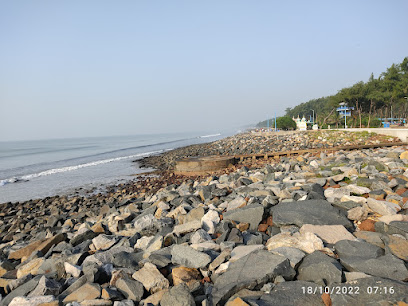
New Digha Sea Beach
Experience the enchanting beauty of New Digha Sea Beach, a serene coastal retreat in West Bengal perfect for relaxation and adventure.
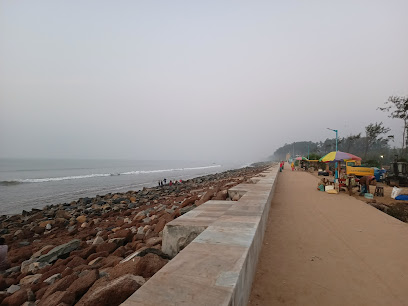
Digha Science Centre & National Science Camp
Explore the Digha Science Centre & National Science Camp – a vibrant hub of interactive science exhibits and educational experiences for all ages.
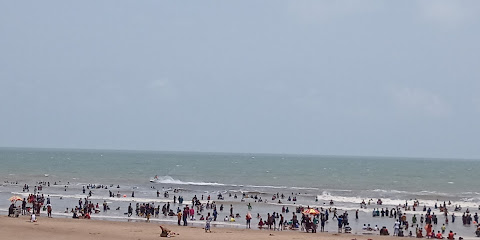
DHEU SAGAR
Experience the serene beauty of Dheu Sagar Park in Digha, West Bengal, where lush landscapes meet breathtaking sea views for the perfect getaway.
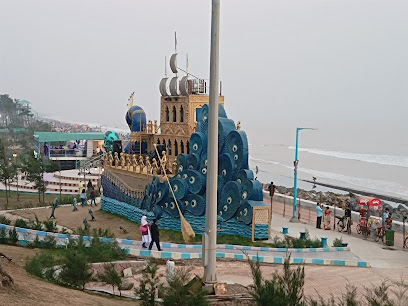
Marine Aquarium & Regional Centre
Discover the beauty of marine life at the Marine Aquarium & Regional Centre in Digha, a top tourist attraction showcasing diverse aquatic species.
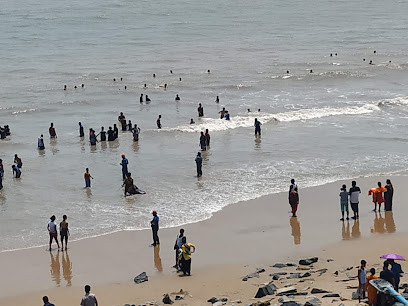
Old Digha Sea Beach
Experience the serenity and beauty of Old Digha Sea Beach, India's oldest sea beach, where relaxation meets adventure amidst stunning coastal views.
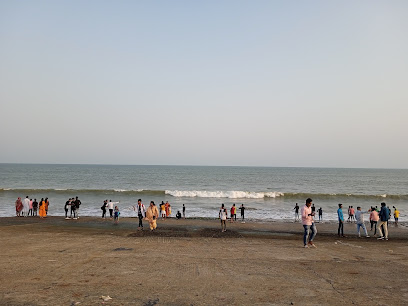
Digha Mohona Watch Point
Discover the beauty of Digha Mohona Watch Point, where the Champa River meets the Bay of Bengal for stunning views and relaxation.
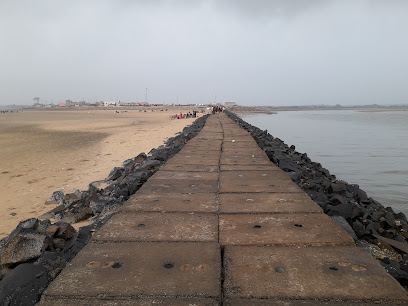
New Digha Beach
Explore the stunning New Digha Beach in West Bengal, where golden sands meet the soothing waves of the Bay of Bengal, promising a perfect coastal escape.
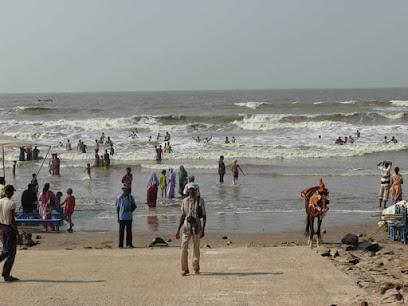
New Digha Picnic Spot
Experience the tranquil beauty of New Digha Picnic Spot, a perfect blend of nature, relaxation, and seaside fun in West Bengal.
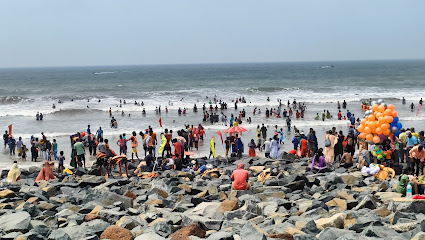
Digha Beach
Discover the serene beauty of Digha Beach, a coastal paradise in West Bengal, where golden sands meet vibrant local culture and thrilling adventures await.
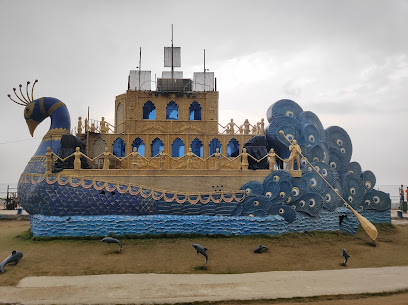
Shankarpur beach digha
Discover the tranquil beauty of Shankarpur Beach, a serene coastal retreat in West Bengal, perfect for relaxation and exploration.
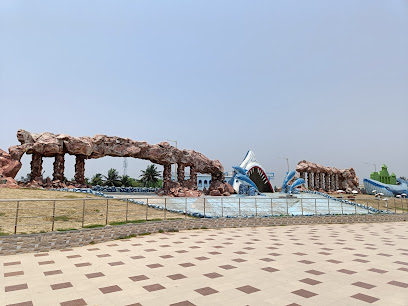
Dighali Tourism Property-I( WBTDCL)
Experience the perfect blend of comfort and coastal charm at Dighali Tourism Property-I in Digha, West Bengal, a prime choice for every traveler.
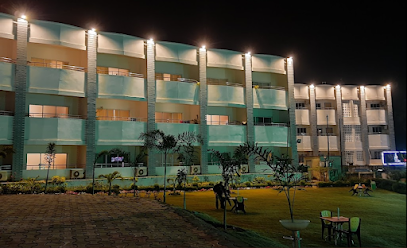
Amarabati Park Rope Way
Experience breathtaking views and natural beauty at Amarabati Park Rope Way in Digha, West Bengal - a perfect blend of adventure and tranquility.
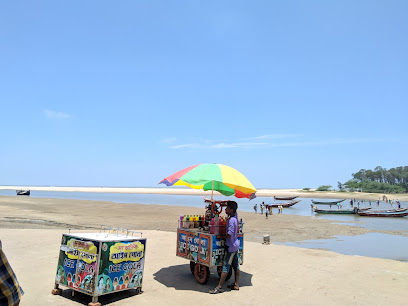
Nehru Market
Explore the vibrant Nehru Market in Digha, where culture, crafts, and culinary delights unite for an unforgettable shopping experience.
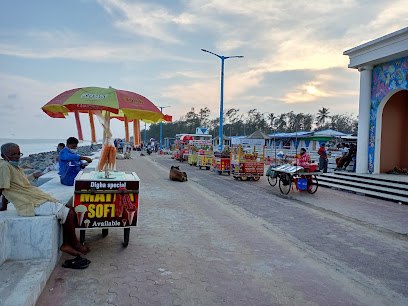
Digha Saikatabas
Experience the serene beauty of Digha at Saikatabas, a premier resort hotel where relaxation meets coastal charm in West Bengal.

Unmissable attractions to see
Digha Sea Beach
Explore Digha Sea Beach: West Bengal's favorite coastal escape with serene shores, casuarina groves, and stunning ocean views.
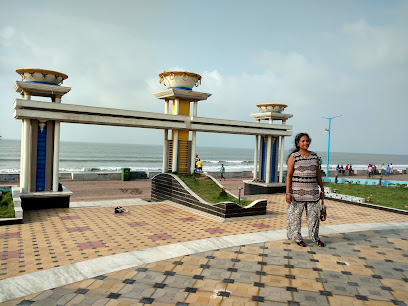
Digha Science Centre & National Science Camp
Explore interactive science exhibits, planetarium shows, and science parks at Digha's premier science museum.
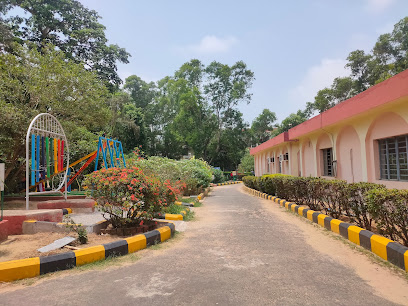
DHEU SAGAR
Escape to Dheu Sagar in Digha: A serene park with lush greenery, boating, and breathtaking sea views for a perfect getaway.
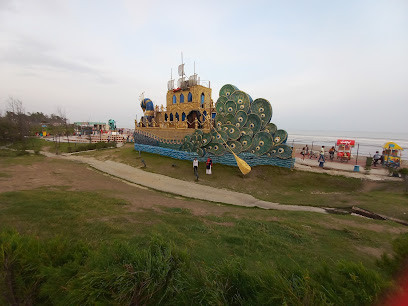
Marine Aquarium & Regional Centre
Explore diverse marine life at Digha's Marine Aquarium & Regional Centre, a hub for research, education, and conservation of the Bay of Bengal's underwater world.
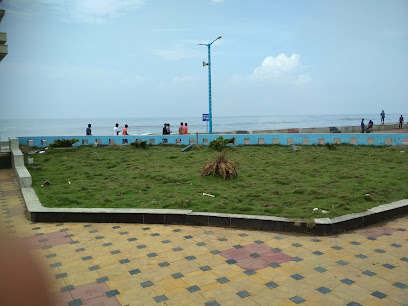
Digha Mohona
Witness the scenic confluence of river and sea at Digha Mohona, a vibrant coastal gem with a bustling fish market.
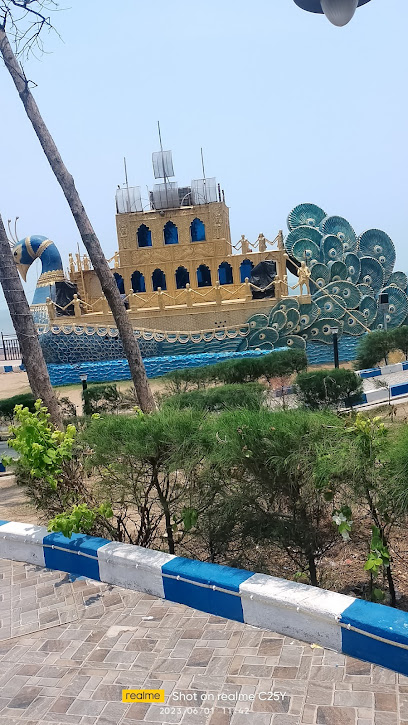
Digha Mohona Watch Point
Experience stunning views and vibrant fish markets at the meeting point of the Champa River and the Bay of Bengal in Digha.
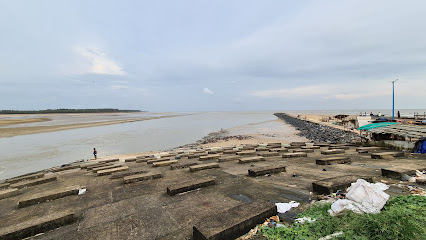
New Digha Beach
Escape to the serene shores of New Digha Beach, where tranquil waters meet breathtaking sunrises and a peaceful retreat awaits.
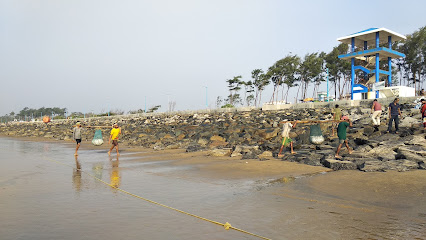
Shankarpur beach digha
Escape to Shankarpur Beach: A tranquil West Bengal retreat with pristine shores, casuarina trees, and a charming fishing harbor.
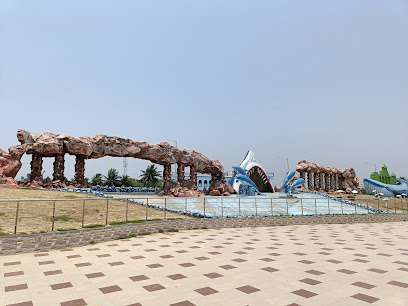
Amarabati Park Rope Way
Escape to Amarabati Park in Digha: Lush gardens, scenic ropeway, and tranquil boating for a perfect family retreat away from the beach crowds.
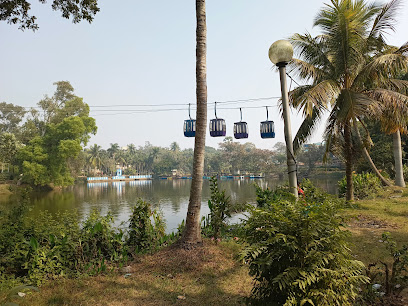
Nehru Market
Explore Nehru Market in Digha for vibrant local crafts, Bengali cuisine, and unique souvenirs in a bustling coastal bazaar.
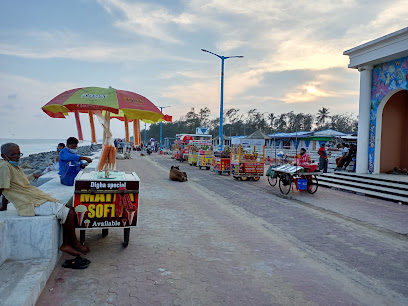
Digha Jahaz Bari 7D Show
Experience cinema like never before with thrilling 7D adventures and virtual reality fun for the whole family in Digha!
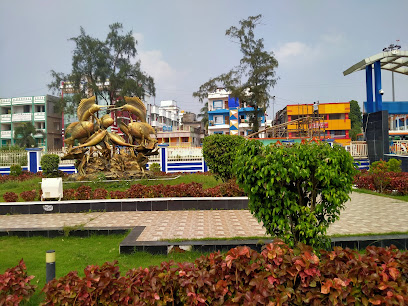
Wonderland Kajal Dighi
Discover family fun at Wonderland Kajal Dighi in Digha, with a toy train, boating lake, and beautiful gardens for a memorable day out.
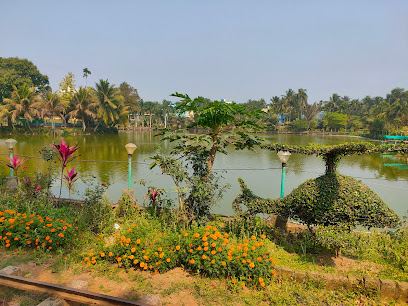
Online solutions
Escape to serenity at Amarabati Park in Digha: lush gardens, scenic ropeway, and peaceful family fun await.
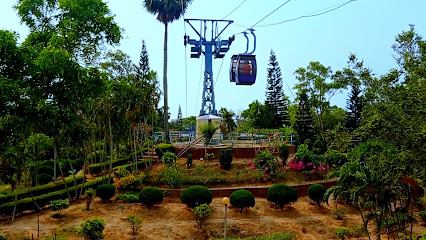
Saikat Sarani
Experience Digha's coastal charm: Stroll along Saikat Sarani for stunning sea views and local flavors.
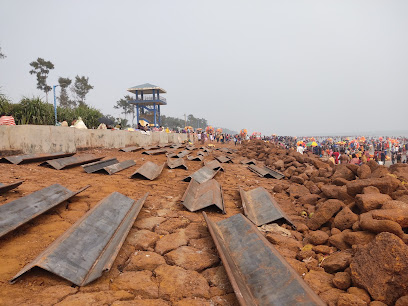
Biswa Bangla Park, Old Digha
Escape to Biswa Bangla Park in Old Digha: Where serene coastline views meet lush greenery and cultural charm for a perfect family getaway.
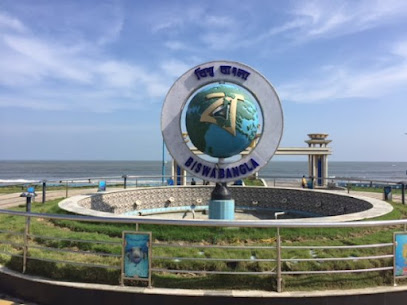
Essential places to dine
Restaurant Bhorpet Digha
Discover exquisite Bengali and Chinese cuisine at Restaurant Bhorpet Digha - a family-friendly dining experience along the scenic coast.
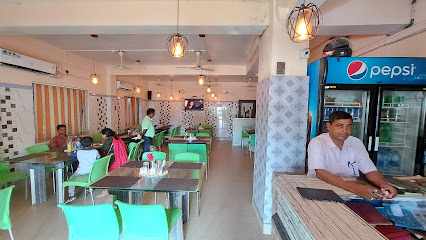
Mitra Café
Discover authentic Indian flavors at Mitra Café in Digha - where every meal is a celebration of taste and culture.
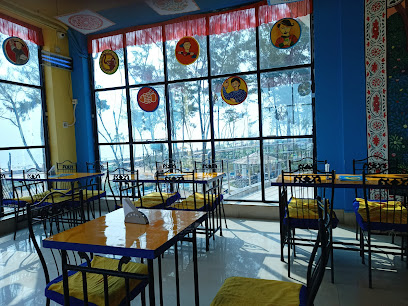
Koshe Kosha, Digha (কষে কষা, দীঘা)
Experience authentic Bengali cuisine at Koshe Kosha in Digha – where every dish tells a story.
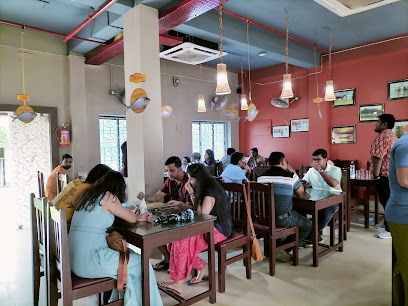
Wow! Momo
Discover the delicious world of momos at Wow! Momo - where traditional flavors meet modern fast food in New Digha.
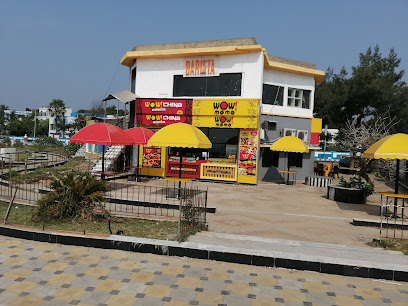
Nimantran Hotel & Restaurant
Experience authentic Indian cuisine at Nimantran Hotel & Restaurant in Digha - where every meal tells a story.
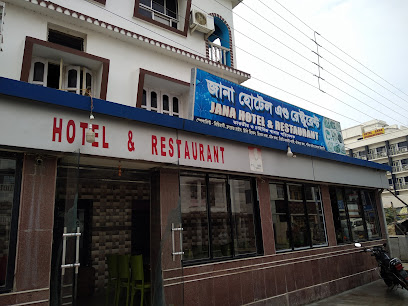
SONAR BANGLA RESTAURANT
Experience authentic Bengali flavors at Sonar Bangla Restaurant in New Digha - where every meal tells a story.
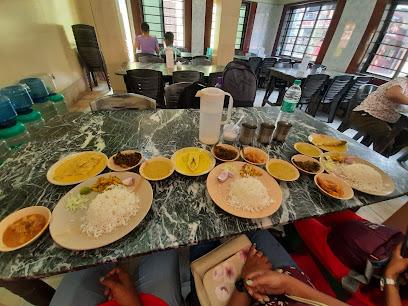
Biriyani House
Discover delightful biryani and diverse Chinese cuisine at Biriyani House in Digha – a perfect spot for food enthusiasts.
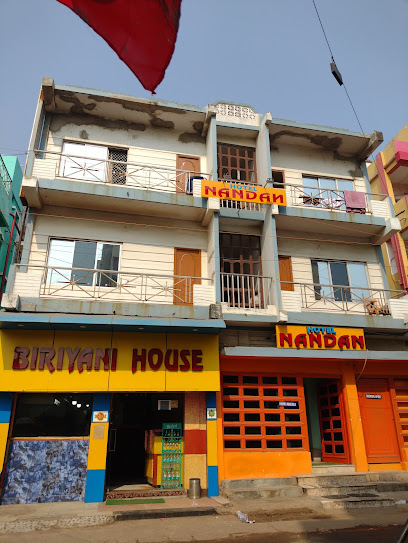
Radhagovinda Bhojanalaya
Experience the vibrant flavors of vegetarian cuisine at Radhagovinda Bhojanalaya in Digha - a culinary gem celebrating Indian flavors.
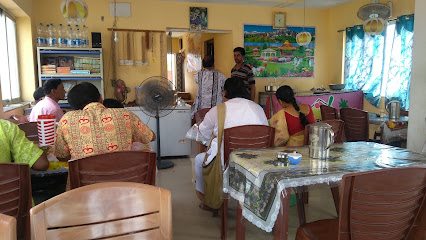
Bong Pizza - best pizza restaurant in Digha
Discover Bong Pizza in Digha: A culinary gem serving mouthwatering pizzas with fresh ingredients and inviting ambiance.
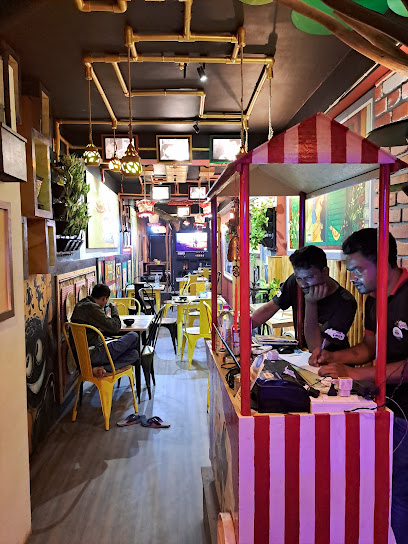
Deli K Sea
Discover culinary delights at Deli K Sea in Digha - a beachfront restaurant serving fresh seafood and authentic local cuisine.
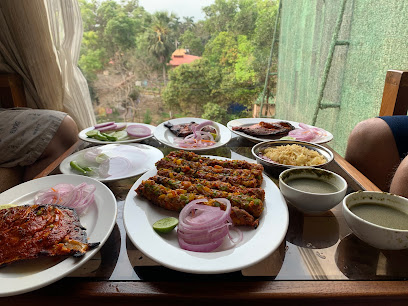
Central Canteen
Experience the vibrant flavors of Bengali cuisine at Central Canteen in New Digha – where every meal is a seaside delight.
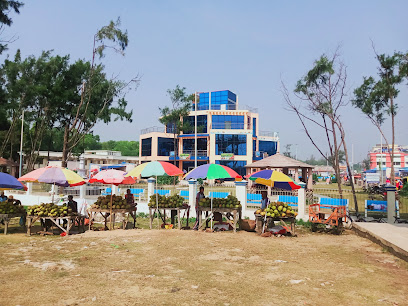
The Bite Restaurant
Experience culinary excellence at The Bite Restaurant in Digha - where flavor meets hospitality.
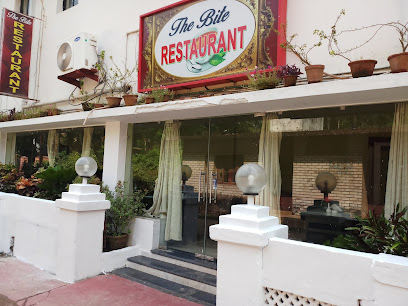
Hotel Pabiyra New Digha
Discover the flavors of India at Hotel Pabiyra New Digha – where every dish tells a story amidst stunning coastal views.
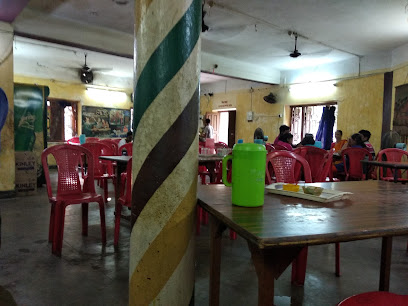
SWADE ALHADE
Discover authentic Bengali cuisine at SWADE ALHADE in Digha - where every dish tells a story.
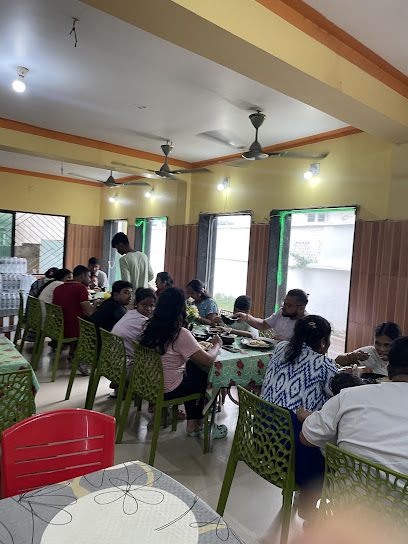
Saikatabas Restaurant
Experience authentic Indian flavors at Saikatabas Restaurant in Digha - a culinary gem on India's beautiful coastline.
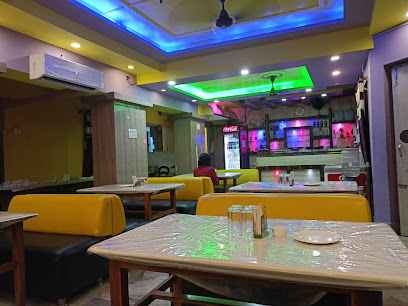
Markets, malls and hidden boutiques
Nehru Market
Discover Nehru Market in Digha, West Bengal, where vibrant stalls, local delicacies, and a lively atmosphere await every traveler.
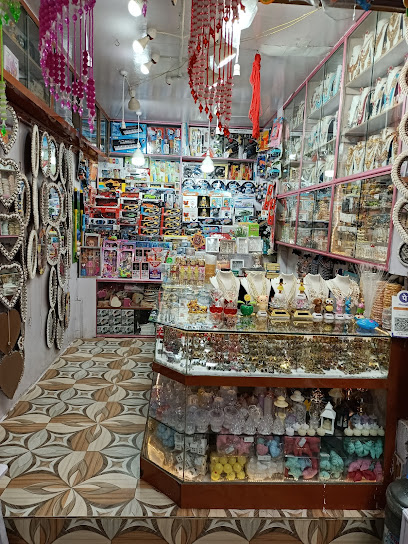
New Digha New Market
Discover the vibrant local culture at New Digha New Market, a bustling hub for authentic cuisine and unique handicrafts in West Bengal.
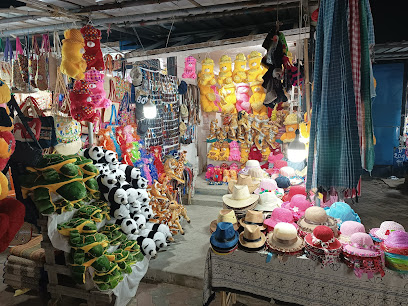
New Digha F.L. On Shop
Experience the rich selection of beverages at New Digha F.L. On Shop, your go-to liquor destination in Digha, West Bengal.
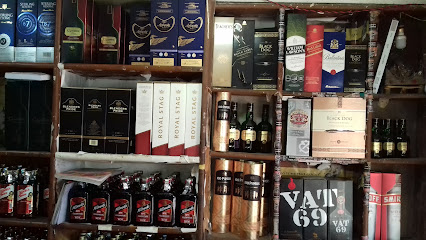
Asha F L Off Counter
Explore Asha F L Off Counter in Digha for an extensive selection of wines, perfect for every occasion and celebration during your visit.
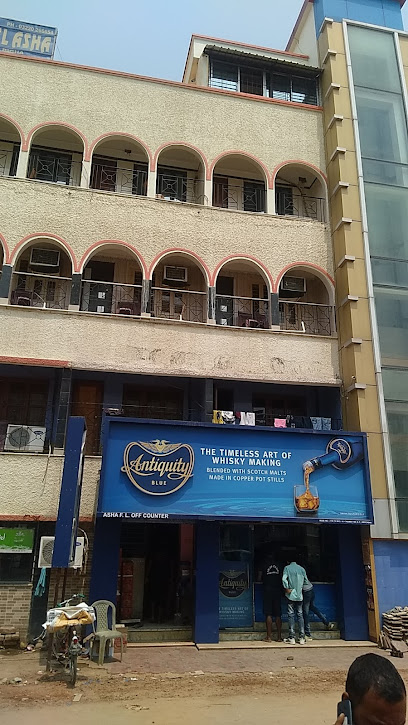
Tantuja - Digha
Discover the vibrant fashion scene at Tantuja in Digha, where local styles meet beach vibes for an unforgettable shopping experience.
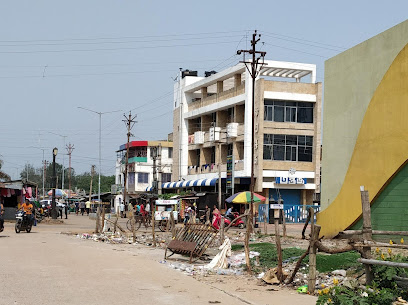
Old Digha Seaside Market
Explore Old Digha Seaside Market: A vibrant fusion of local crafts, delicious cuisine, and unforgettable coastal charm in West Bengal.
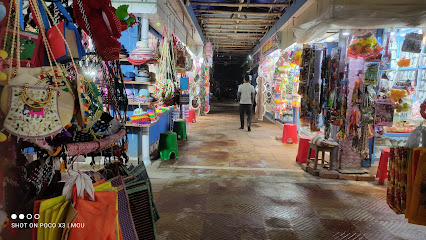
Beverage (India) F.L Off Shop
Explore a wide selection of local and international wines at Beverage (India) F.L Off Shop in Digha, West Bengal—a wine lover's paradise.
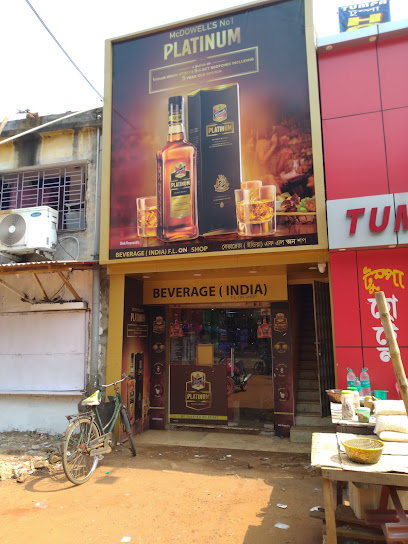
New digha sea beach market
Discover the vibrant New Digha Sea Beach Market, where shopping meets local flavors in a lively coastal atmosphere.
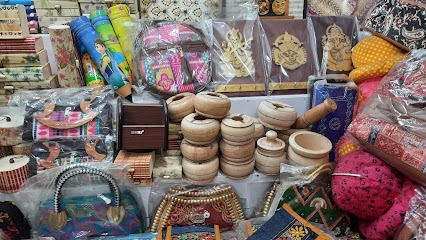
Calcutta Sweets
Experience the rich flavors of India at Calcutta Sweets, a must-visit destination for dessert lovers in Digha.
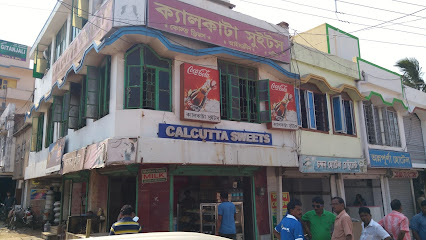
New Digha Beach Market
Explore the lively New Digha Beach Market for unique souvenirs, local delicacies, and a taste of vibrant coastal culture in Digha.
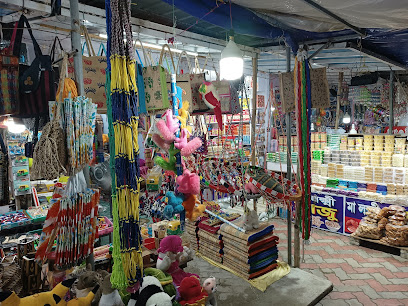
High seas india fl on shop
Discover a world of flavors at High Seas India, Digha's premier liquor shop offering a rich selection of local and international beverages.
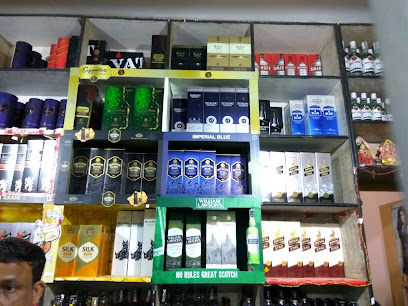
Rana Colours & Creations
Discover unique handicrafts and vibrant souvenirs at Rana Colours & Creations in New Digha, a treasure trove of local artistry.

Maa Kali PanChat & Hookah Lounge
Discover the lively ambiance and diverse flavors at Maa Kali PanChat & Hookah Lounge, your premier destination for relaxation and social engagement in Digha.
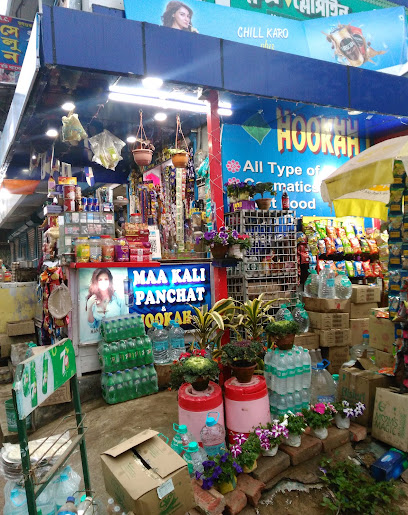
Das Enterprise
Discover a treasure trove of tools and materials at Das Enterprise, your go-to hardware store in Digha, West Bengal, where local craftsmanship meets exceptional service.
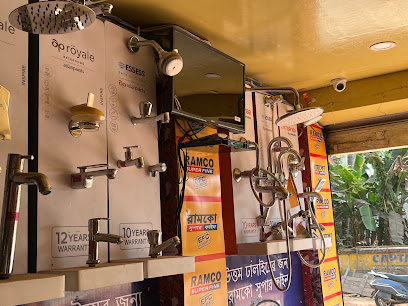
Shatabdi Fashion
Discover the latest in fashion at Shatabdi Fashion, New Digha, where style meets affordability for every traveler.
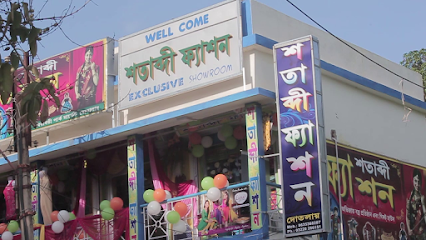
Essential bars & hidden hideouts
Restaurant Bhorpet Digha
Discover the flavors of Bengal at Bhorpet Digha, where fresh seafood meets delightful Indian cuisine in a family-friendly atmosphere.
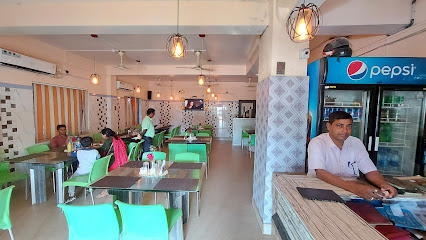
Mitra Café
Experience authentic Indian flavors at Mitra Café in Digha, a must-visit culinary haven for all tourists seeking delicious meals in a welcoming atmosphere.
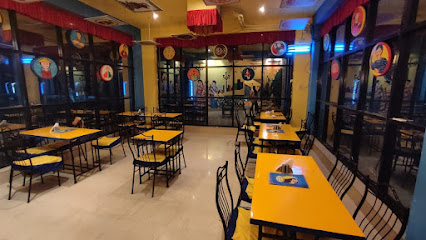
Bong Pizza - best pizza restaurant in Digha
Savor the best pizzas in Digha at Bong Pizza, a culinary gem offering a wide variety of flavors in a relaxed, inviting atmosphere.
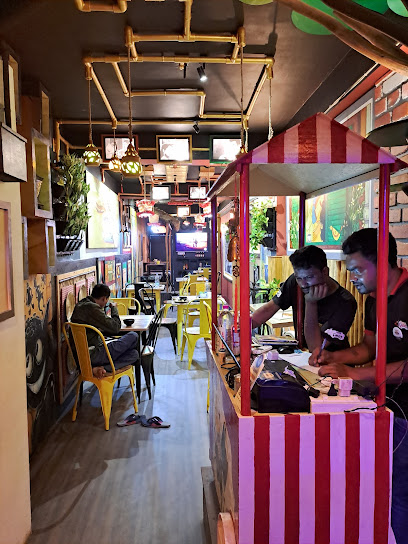
The Bite Restaurant
Discover Digha's culinary delight at The Bite Restaurant, where local flavors meet international cuisine in a charming seaside setting.
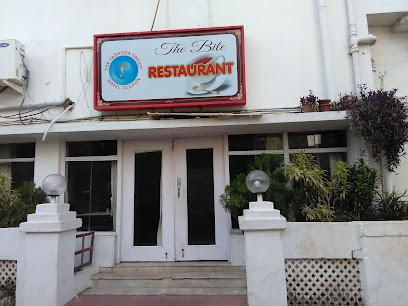
Cafe DePot
Discover the culinary delights of Cafe DePot in New Digha, where exquisite flavors meet a cozy atmosphere.
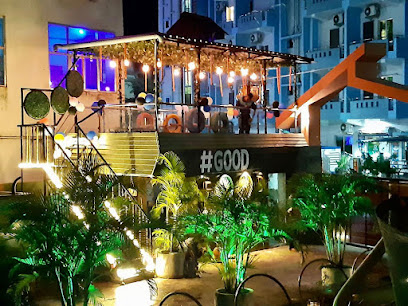
Ripple Bar
Discover Ripple Bar in Digha for a relaxing atmosphere, refreshing drinks, and stunning views perfect for unwinding after a day of exploration.
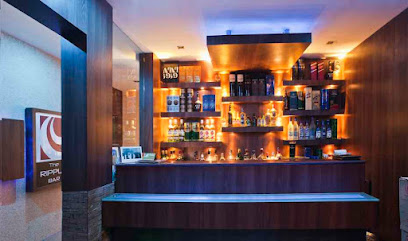
Restaurant Khao
Experience the rich flavors of Bengali and Chinese cuisine at Restaurant Khao in New Digha, perfect for families and food enthusiasts.
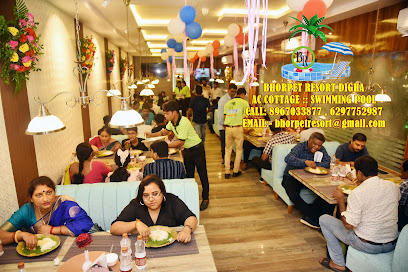
Aqua Blues Restaurant
Experience the best of Digha's coastal cuisine at Aqua Blues Restaurant, where fresh seafood meets stunning seaside views.
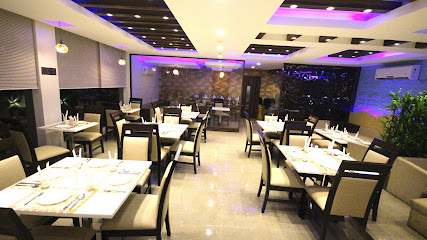
Disha Bar Cum Restaurant
Disha Bar Cum Restaurant: Savor local flavors and enjoy refreshing drinks in a vibrant seaside atmosphere, perfect for a memorable dining experience.
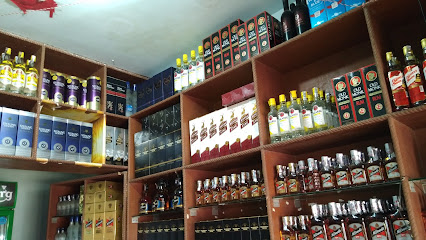
Adi Sonar Bangla Restaurant
Experience the authentic flavors of West Bengal at Adi Sonar Bangla Restaurant in New Digha, where every meal is a celebration of local cuisine.
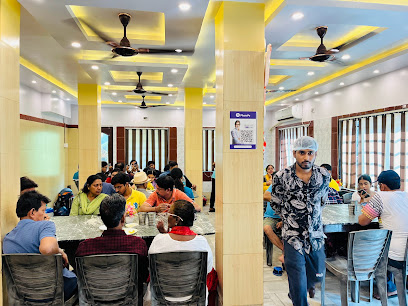
Hotel Mamoni Group Restaurant
Discover the flavors of Bengal at Hotel Mamoni Group Restaurant, where tradition meets taste in a charming coastal setting.
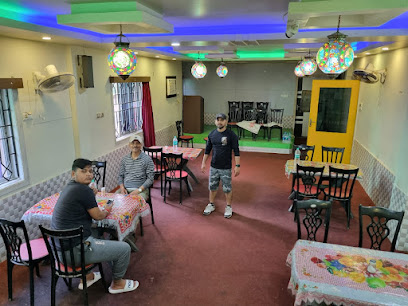
Sea Hawk
Discover exquisite dining at Sea Hawk, where fresh local flavors and stunning views of New Digha Sea Beach create a memorable culinary experience.
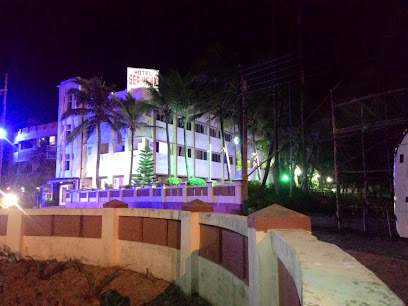
Vojan Hotel & Restaurant
Explore the coastal flavors of Digha at Vojan Hotel & Restaurant, where every dish tells a story of culinary tradition and fresh ingredients.
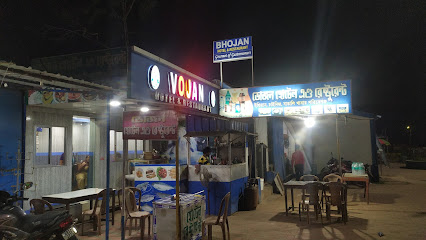
AMANTRAN RESTAURANT CUM BAR & OFF SHOP
Experience the authentic taste of West Bengal at Amantran Restaurant cum Bar & Off Shop, a must-visit culinary destination in Digha.
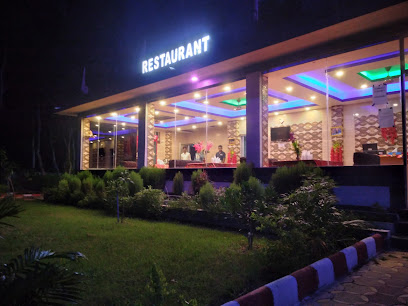
High seas india fl on shop
Discover High Seas India, the ultimate liquor shop in Digha, West Bengal, offering a diverse selection of wines and spirits for every occasion.
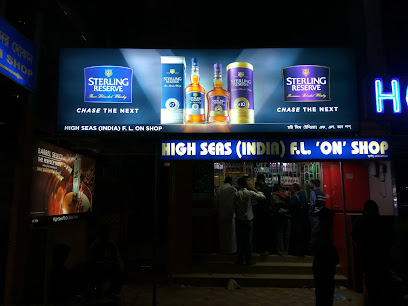
Local Phrases about Digha
-
- Helloनमस्कार
[Namaskar] - Goodbyeअलविदा
[Alvida] - Yesहाँ
[Haan] - Noनहीं
[Nahi] - Please/You're welcomeकृपया
[Kripaya] - Thank youधन्यवाद
[Dhanyavad] - Excuse me/Sorryमाफ़ कीजिए
[Maaf kijiye] - How are you?आप कैसे हैं?
[Aap kaise hain?] - Fine. And you?ठीक हूँ। आप?
[Theek hoon. Aap?] - Do you speak English?क्या आप अंग्रेज़ी बोलते हैं?
[Kya aap angrezi bolte hain?] - I don't understandमुझे समझ में नहीं आया
[Mujhe samajh mein nahi aaya]
- Helloनमस्कार
-
- I'd like to see the menu, pleaseकृपया मेन्यू दिखाइए
[Kripaya menu dikhaiye] - I don't eat meatमैं मांस नहीं खाता
[Main maans nahi khaata] - Cheers!जय हो!
[Jay ho!] - I would like to pay, pleaseकृपया मैं भुगतान करना चाहूँ
[Kripaya main bhugtan karna chaahoon]
- I'd like to see the menu, pleaseकृपया मेन्यू दिखाइए
-
- Help!मदद!
[Madad!] - Go away!चले जाओ!
[Chale jao!] - Call the Police!पुलिस को बुलाओ!
[Police ko bulaao!] - Call a doctor!डॉक्टर को बुलाओ!
[Doctor ko bulaao!] - I'm lostमैं खो गया हूँ
[Main kho gaya hoon] - I'm illमुझे बीमारी है
[Mujhe bimari hai]
- Help!मदद!
-
- I'd like to buy...मैं खरीदना चाहूँगा...
[Main khareedna chahunga...] - I'm just lookingमैं बस देख रहा हूँ
[Main bas dekh raha hoon] - How much is it?यह कितने का है?
[Yeh kitne ka hai?] - That's too expensiveयह बहुत महंगा है
[Yeh bahut mehnga hai] - Can you lower the price?क्या आप कीमत कम कर सकते हैं?
[Kya aap keemat kam kar sakte hain?]
- I'd like to buy...मैं खरीदना चाहूँगा...
-
- What time is it?कितने बजे हैं?
[Kitne baje hain?] - It's one o'clockएक बजे हैं
[Ek baje hain] - Half past (10)दस बजे तक
[Das baje tak] - Morningसुबह
[Subah] - Afternoonदोपहर
[Dopahar] - Eveningशाम
[Shaam] - Yesterdayकल
[Kal] - Todayआज
[Aaj] - Tomorrowकल
[Kal] - 1एक
[Ek] - 2दो
[Do] - 3तीन
[Teen] - 4चार
[Char] - 5पाँच
[Paanch] - 6छह
[Chhah] - 7सात
[Saath] - 8आठ
[Aath] - 9नौ
[Nau] - 10दस
[Das]
- What time is it?कितने बजे हैं?
-
- Where's a/the...?...कहाँ है?
[...kahan hai?] - What's the address?पता क्या है?
[Pata kya hai?] - Can you show me (on the map)?क्या आप मुझे दिखा सकते हैं?
[Kya aap mujhe dikha sakte hain?] - When's the next (bus)?अगली (बस) कब है?
[Agli (bus) kab hai?] - A ticket (to ....)एक टिकट (को...)
[Ek ticket (ko...)]
- Where's a/the...?...कहाँ है?
History of Digha
-
Digha, originally known as Beerkul, was first mentioned in British documents in the late 18th century. The area was recognized for its long, serene beach and pleasant climate. It remained relatively obscure until the mid-20th century, when it began to attract attention as a potential beach resort.
-
In the 1940s, Digha's potential as a tourist destination was realized by Dr. Bidhan Chandra Roy, the then-Chief Minister of West Bengal. He envisioned Digha as a premier beach resort and initiated several development projects, including improved infrastructure and accommodations, which laid the foundation for its future growth.
-
Digha holds cultural importance due to its proximity to traditional Bengali villages and their rich heritage. The local culture is reflected in the festivals, cuisine, and crafts of the region. Notable festivals include Durga Puja and Saraswati Puja, which are celebrated with great enthusiasm and attract numerous visitors.
-
Over the decades, Digha has grown into a significant economic hub for the region. The tourism industry has spurred the development of hotels, restaurants, and local markets, providing employment opportunities and boosting the local economy. The fishing industry also plays a crucial role, with Digha being known for its fresh seafood.
-
In recent years, Digha has seen further development with the introduction of new attractions and improved facilities. Key initiatives include the establishment of the Digha Science Centre, the Marine Aquarium and Regional Centre, and the Digha Gate, which symbolizes the town's welcoming spirit. These developments have enhanced Digha's appeal as a modern beach destination.
-
Recognizing the need to preserve its natural beauty, Digha has undertaken various environmental conservation efforts. These include beach clean-up drives, afforestation projects, and measures to protect marine life. These initiatives aim to maintain the ecological balance and ensure that Digha remains a sustainable tourist destination for future generations.
Digha Essentials
-
Digha is a popular seaside resort town located in the state of West Bengal, India. The nearest major city with an airport is Kolkata, approximately 180 kilometers away. From Kolkata, you can reach Digha by train, bus, or car. Trains from Howrah Station, such as the Tamralipta Express and the Kandari Express, offer a convenient way to travel, taking around 3 to 4 hours. Buses operated by the West Bengal Transport Corporation (WBTC) and private operators also ply regularly from Kolkata’s Esplanade area, with a travel time of about 4 to 5 hours. Alternatively, you can drive or hire a taxi for a more flexible and comfortable journey.
-
Once in Digha, you can easily get around by rickshaws, cycle rickshaws, and auto-rickshaws. For longer distances, local buses and shared vans are available. Renting a bicycle is another popular option for exploring the town at your own pace. If you plan to visit nearby attractions such as Shankarpur, Talasari Beach, or Mandarmani, hiring a cab or an auto-rickshaw is recommended.
-
The official currency in India is the Indian Rupee (INR). ATMs are available in Digha, but it is advisable to carry some cash, especially for small purchases and in places where card payments may not be accepted. Most hotels, restaurants, and larger shops do accept credit and debit cards. Mobile payment options like Paytm, Google Pay, and PhonePe are becoming increasingly popular and are accepted in many establishments.
-
Digha is generally considered a safe destination for tourists. However, like any other tourist spot, it is important to take basic precautions. Avoid isolated areas at night and keep an eye on your belongings in crowded places such as beaches and markets. While Digha does not have specific high-crime neighborhoods, pickpocketing and petty theft can occur, so remain vigilant.
-
In case of an emergency, dial 100 for police assistance, 101 for fire services, and 102 for medical emergencies. The nearest hospital is Digha State General Hospital, which offers basic medical services. It is advisable to have travel insurance that covers medical emergencies. For minor health issues, there are several pharmacies in Digha where you can purchase over-the-counter medications.
-
Fashion: Do wear light, comfortable clothing suitable for the beach. Avoid overly revealing outfits, especially away from the beach. Religion: Do respect local religious practices and remove footwear before entering temples. Public Transport: Do be polite and patient when using public transport. Avoid eating or drinking on buses and trains. Greetings: Do greet people with a 'Namaste' or a handshake. Always be respectful in your interactions. Eating & Drinking: Do try local seafood delicacies and Bengali sweets. Avoid drinking tap water; opt for bottled water instead.
-
To experience Digha like a local, visit the fish markets early in the morning to see the fresh catch being brought in. Enjoy a leisurely stroll along the New Digha Beach promenade and try local snacks like 'jhalmuri' and 'ghugni'. Engage with local fishermen to learn about their way of life and even arrange for a fishing trip. Don’t miss the Science Centre and Amarabati Park for a relaxing day out. For a unique experience, visit the nearby Udaipur Beach, which is less crowded and offers a serene environment.
Trending Landmarks in Digha
-
Digha Sea Beach
-
New Digha Sea Beach
-
Digha Science Centre & National Science Camp
-
DHEU SAGAR
-
Marine Aquarium & Regional Centre
-
Old Digha Sea Beach
-
Digha Mohona Watch Point
-
New Digha Beach
-
New Digha Picnic Spot
-
Digha Beach
-
Shankarpur beach digha
-
Dighali Tourism Property-I( WBTDCL)
-
Amarabati Park Rope Way
-
Nehru Market
-
Digha Saikatabas
Nearby Cities to Digha
-
Things To Do in Bhubaneswar
-
Things To Do in Jessore
-
Things To Do in Khulna
-
Things To Do in Ranchi
-
Things To Do in Barisal
-
Things To Do in Rajshahi
-
Things To Do in Dhaka
-
Things To Do in Comilla
-
Things To Do in Chittagong
-
Things To Do in Agartala
-
Things To Do in Cox's Bazar
-
Things To Do in Rangpur
-
Things To Do in Patna
-
Things To Do in Siliguri
-
Things To Do in Sylhet









